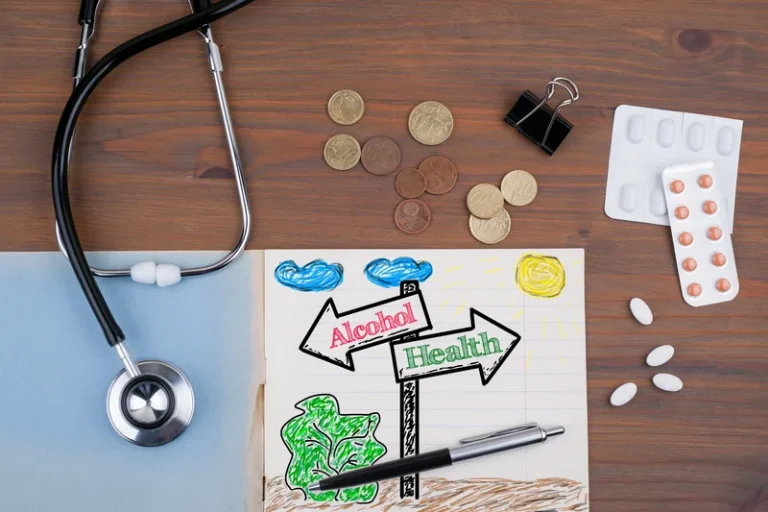
It also includes binge drinking — a pattern of drinking where a male has five or more drinks within two hours or a female has at least four drinks within two hours. This disorder also involves having to drink more to get the same effect or having withdrawal symptoms when you rapidly decrease or stop drinking. Alcohol use disorder includes a level of drinking that’s sometimes called alcoholism. While intoxication involves manageable symptoms of alcohol use, alcohol poisoning is a medical emergency that requires immediate attention. While being drunk can sometimes feel unpleasant, alcohol poisoning is a medical emergency requiring immediate attention. Like binge drinking, high-intensity drinking limits the body’s effectiveness at metabolizing alcohol.
What are the possible complications of alcohol poisoning?
For men, this can look like lowered libido and erectile dysfunction, as well as decreased muscle mass. For women, it can increase the risk of breast cancer, impair bone health, and lead to mood changes. In mild alcoholic hepatitis, liver damage occurs slowly over the course of many years. Alcohol consumption is one of the leading causes of liver damage.

When your teen has a drinking problem

Enter your phone number below to receive a free and confidential call from a treatment provider. Never leave an unconscious person who might have alcohol poisoning alone. In people affected, it is important to also check for an underlying alcohol use disorder. https://ecosoberhouse.com/ Has been an expert in addiction medicine for more than 15 years. In addition to managing a successful family medical practice, Dr. Hoffman is board certified in addiction medicine by the American Osteopathic Academy of Addiction Medicine (AOAAM).
Talk to Someone About Alcoholism Treatment
These effects will subside as your body adjusts to the absence of alcohol. When too much alcohol is consumed and the body cannot process the amount, there can be very serious consequences. Carbon monoxide (CO) is a toxic gas produced by the burning of gasoline, wood, propane, charcoal, and other fuel.
Find Help and Support for an Issue with Alcohol
Drinking problems put an enormous strain on the people closest to you. Alcohol use disorder can include periods of being drunk (alcohol intoxication) and symptoms of withdrawal. If alcohol misuse is a recurring problem for you, it may be time to contact a treatment provider. They can answer any rehab-related questions and discuss available treatment options to get you started on your journey towards a healthier, addiction-free future.

Five myths about alcoholism and alcohol abuse

Common household chemicals include antifreeze, motor oil, latex paint, batteries, all-purpose cleaners, bleach, pesticides, and more. Ingestion or inhalation of these chemicals can cause serious to life-threatening conditions, even death. When CO enters your bloodstream, it binds with greater affinity to hemoglobin (the protein in red blood cells that transports oxygen throughout the body) than oxygen. This prevents oxygen from getting to tissues and cells, which can lead to serious tissue damage, even death. Depending on the type of food poisoning, symptoms can range from mild to severe.
No matter a person’s alcohol tolerance, weight, age or gender, alcohol poisoning can affect anyone. Binge drinking can have many of the same long-term effects on your health, relationships, and finances as other types of problem drinking. Binge drinking can lead to reckless behavior such as violence, having unprotected sex, and driving under the influence. Binge drinking can also lead to alcohol poisoning, a serious and sometimes deadly condition. Binge drinking is defined as drinking so much that your blood alcohol level reaches the legal limit of intoxication within a couple of hours. For men, that means consuming five or more drinks within about two hours, and for women, four or more drinks within a similar period.
Several functions — including speech, balance, coordination, judgment, and reaction times — are significantly impaired. Memory gaps or blackouts may also occur, and the person may vomit. Alcohol poisoning is serious and potentially life-threatening. If you think someone has it, get them medical help as soon as possible. If you think you might have a problem with alcohol, call SAMHSA or talk to your healthcare provider. To prevent alcohol poisoning, limit your alcohol consumption.
- This plan will help manage the condition as well as the withdrawal symptoms that may occur with abstinence.
- Alcohol.org is a subsidiary of AAC, a nationwide provider of treatment facilities focused on providing hope and recovery for those in need.
- Binge drinking can also lead to alcohol poisoning, a serious and sometimes deadly condition.
- The best way to reduce your risk is to keep your alcohol consumption low or consider non-alcoholic beverages as an alternative.
- If alcohol misuse is a recurring problem for you, it may be time to contact a treatment provider.
- An intervention from loved ones can help some people recognize and accept that they need professional help.
And middle-aged people are more likely than younger ones to take prescription drugs, which can increase the severity of alcohol poisoning. Binge drinking a warning sign or symptom of alcohol poisoning is is defined as drinking that brings blood alcohol concentration (BAC) to 0.08% or higher. A person can consume a fatal dose of alcohol before passing out.

